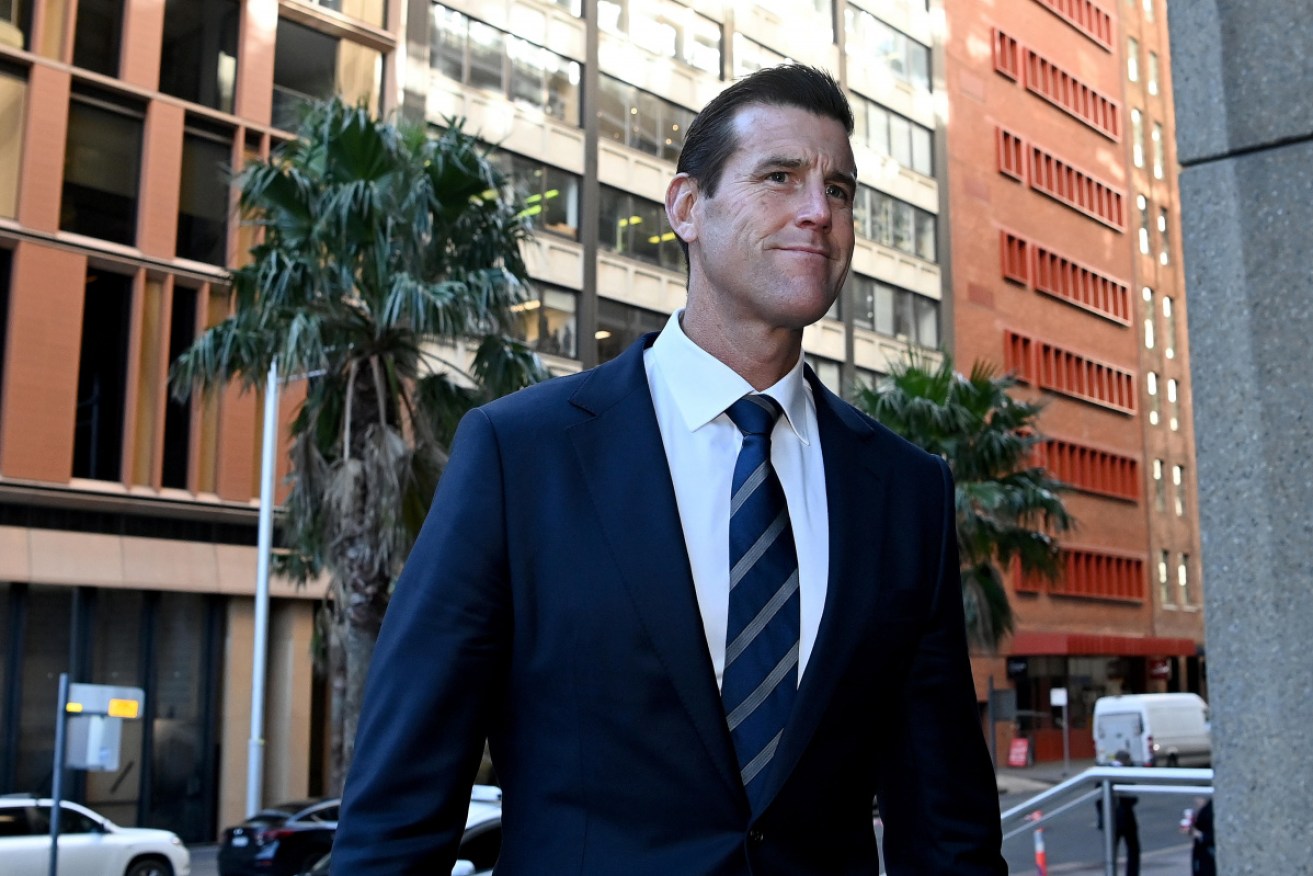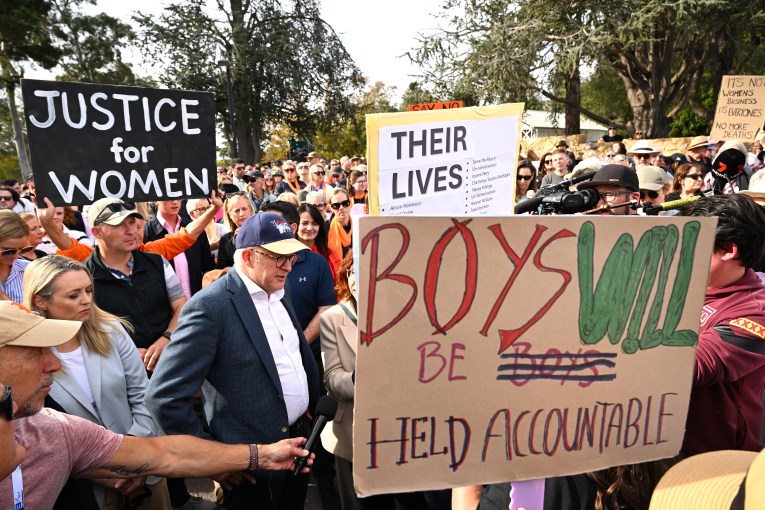‘Devastated’ Ben Roberts-Smith gives evidence for first time at defamation trial

An SAS soldier has testified Ben Roberts-Smith bragged about blowing a terrified man's brains out. Photo: AAP
Australian war veteran Ben Roberts-Smith has told a Sydney court it “breaks” his heart and he is “devastated” to be publicly accused of multiple murders after spending his life fighting for his country.
On Thursday, Mr Roberts-Smith stepped into the witness box in a defamation trial against three newspapers, over a series of 2018 articles that reported serious allegations against Special Air Services Regiment soldiers in Afghanistan.
It is the first time the 42-year-old Victoria Cross recipient has spoken in detail about his account of the missions mentioned in the articles.
He has claimed he was defamed by imputations including that he “broke the moral and legal rules of military engagement”, by being involved in up to six unlawful killings.
The Sydney Morning Herald, The Age, The Canberra Times and three journalists are named as respondents. They are relying on a truth defence.
Before Mr Roberts-Smith’s evidence began, barrister Nicholas Owens SC, for the respondents, outlined key elements of their truth defence and submitted that none of the alleged murders involved the “heat of battle” or “fog of war”.

Bruce McClintock asked Ben Roberts-Smith how it felt to be accused of multiple murders. Photo: AAP
Mr Roberts-Smith was asked by his barrister, Bruce McClintock SC, how it made him feel listening to Mr Owens.
“I spent my life fighting for my country and I did everything I could to ensure I did it with honour,” Mr Roberts-Smith told the Federal Court in Sydney.
“I listened to that and I really cannot comprehend that people, on the basis of rumour and innuendo, can maintain that in a public forum.
“It breaks my heart.”
Mr McClintock asked his client how it felt to be accused of multiple murders.
“It’s devastating, quite frankly,” the veteran replied.
He told the court he joined the army because he had always been “fascinated” by the military and came from a family with a strong history of service.
Mr Roberts-Smith outlined his various military awards and university qualifications.
Since leaving the army in 2013, he has moved to Queensland and started public speaking engagements and has recently worked as an executive for Seven West Media.
Mr Owens, in his address, told the court the six alleged murders each involved people “unambiguously” placed under the control of the Australian armed forces.
He said the rules of engagement, which were consistent with the Geneva conventions, included specific rules about a “person under control”.
“Under the Geneva conventions, once a person has been placed under control, no matter that he may be without a shadow of a doubt the most brutal, violent member of the Taliban imaginable, an Australian soldier cannot kill him,” Mr Owens said.
“To do so is murder.”
Mr Owens said the judge would be asked to choose between “two diametrically opposed stories”, with one being a fabrication.
The court heard Mr Owens will call 21 former and current SAS soldiers as witnesses, many of whom have not spoken to one another about what they saw in Afghanistan.
Mr Owens said their evidence was not a result of “jealousy or the product of trauma”; a proposition he described as “inherently implausible”.
They were “simply honourable men who could remain silent no longer”.
He said he would also accuse Mr Roberts-Smith of engaging in “a pattern of behaviour over many years”, which was calculated to undermine the evidence against him.
That included buying multiple “burner phones”, the use of which spiked around key events including his interview with the Inspector-General of the Australian Defence Force.
“Mr Roberts-Smith’s conduct has irretrievably tainted the evidence he seeks to rely on,” Mr Owens said.
Mr Roberts-Smith is the first of about 60 witnesses expected to be called during the trial before Justice Anthony Besanko, which is expected to run for up to 10 weeks.
–ABC








